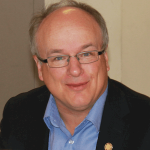82 anti-terror laws in 18 years: has our safety changed?
 With new Australian anti-terror laws running at about five a year over 18 years, there are two fundamental questions: has our safety changed for the better, and do we need all of them now, or should there be a consolidated ‘Anti-terror Act’ that reins in the draconian excesses, restores balanced rights and liberties, and better represents the real dangers in 2020 to the nation?
With new Australian anti-terror laws running at about five a year over 18 years, there are two fundamental questions: has our safety changed for the better, and do we need all of them now, or should there be a consolidated ‘Anti-terror Act’ that reins in the draconian excesses, restores balanced rights and liberties, and better represents the real dangers in 2020 to the nation?


